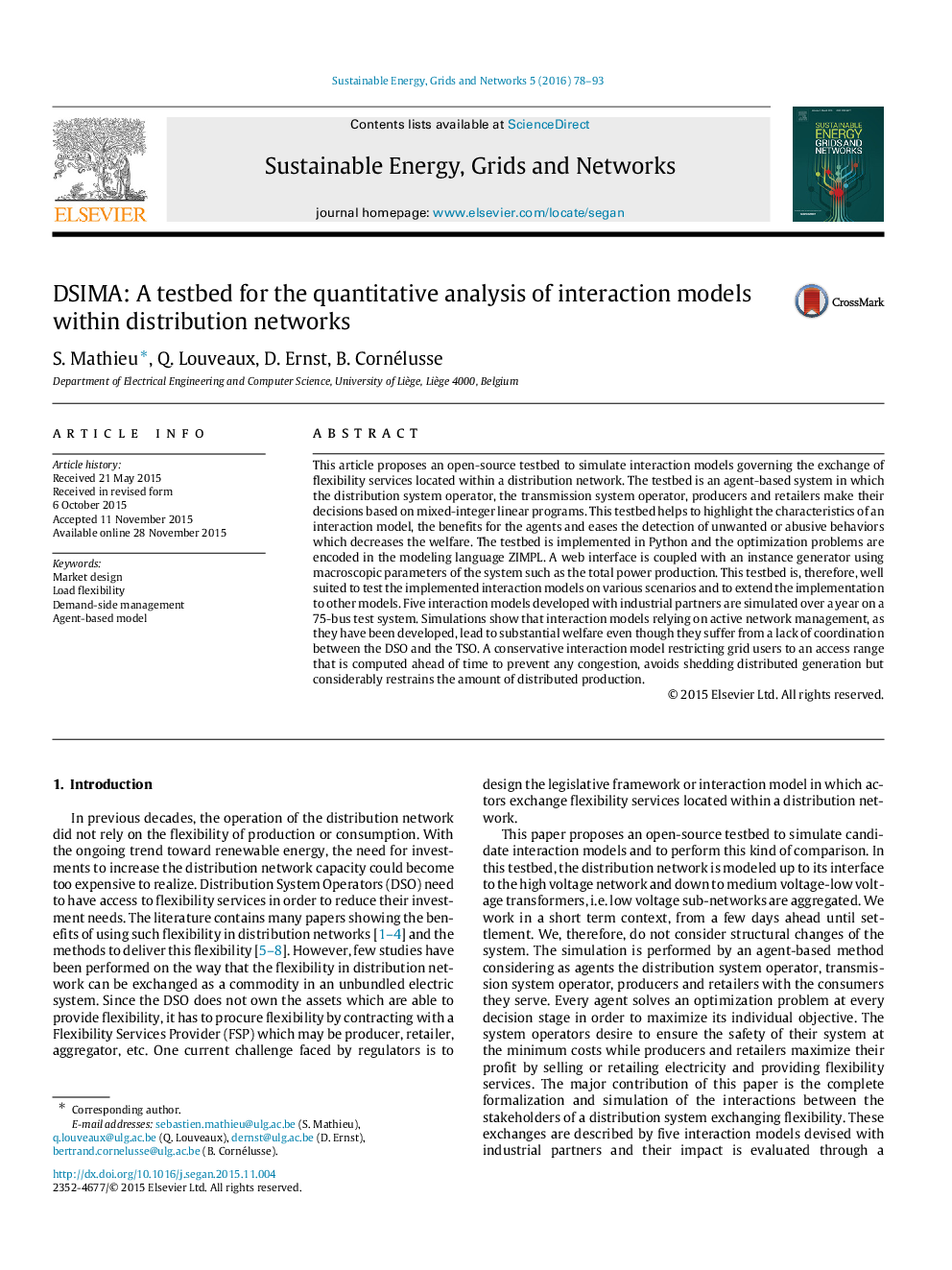| Article ID | Journal | Published Year | Pages | File Type |
|---|---|---|---|---|
| 524757 | Sustainable Energy, Grids and Networks | 2016 | 16 Pages |
This article proposes an open-source testbed to simulate interaction models governing the exchange of flexibility services located within a distribution network. The testbed is an agent-based system in which the distribution system operator, the transmission system operator, producers and retailers make their decisions based on mixed-integer linear programs. This testbed helps to highlight the characteristics of an interaction model, the benefits for the agents and eases the detection of unwanted or abusive behaviors which decreases the welfare. The testbed is implemented in Python and the optimization problems are encoded in the modeling language ZIMPL. A web interface is coupled with an instance generator using macroscopic parameters of the system such as the total power production. This testbed is, therefore, well suited to test the implemented interaction models on various scenarios and to extend the implementation to other models. Five interaction models developed with industrial partners are simulated over a year on a 75-bus test system. Simulations show that interaction models relying on active network management, as they have been developed, lead to substantial welfare even though they suffer from a lack of coordination between the DSO and the TSO. A conservative interaction model restricting grid users to an access range that is computed ahead of time to prevent any congestion, avoids shedding distributed generation but considerably restrains the amount of distributed production.
